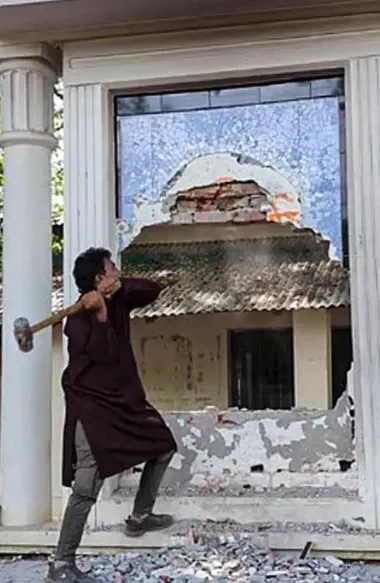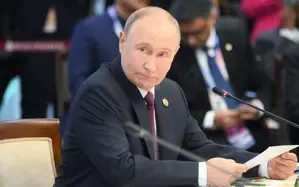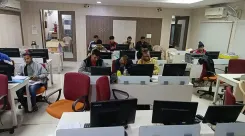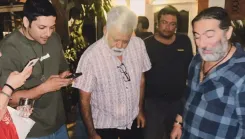Has Grief Been Criminalised in Bangladesh? Sajeeb Wazed Condemns Crackdown on Bangabandhu Anniversary

Synopsis
Key Takeaways
- Sajeeb Wazed condemns the Yunus government's actions against mourners.
- Murals commemorating the 1971 Liberation War have been vandalized.
- Numerous citizens were arrested for participating in mourning traditions.
- The government's crackdown indicates a broader suppression of freedom of expression.
- History and memory play a crucial role in national identity.
Dhaka, Aug 18 (NationPress) Sajeeb Wazed, the son of former Bangladesh Prime Minister Sheikh Hasina, has laid blame on the interim government led by Muhammad Yunus for instigating violence nationwide and effectively criminalising grief. This follows the vandalism of murals commemorating the sacrifices of the 1971 Liberation War, interruptions during prayers, and the arrest of numerous individuals mourning the death anniversary of Bangabandhu Sheikh Mujibur Rahman on August 15.
Sheikh Mujibur Rahman, hailed as the 'Father of the Nation' in Bangladesh, was ruthlessly assassinated on August 15, 1975, alongside several family members.
The Yunus administration has abolished the recognition of August 15 as 'National Mourning Day', continuing its repression against the Awami League.
Wazed, who formerly served as the Information and Communication Technology (ICT) Adviser to the Prime Minister, stated that the night before August 15, Yunus's press secretary openly warned citizens against organizing mourning activities.
Despite the threats, when citizens went ahead with their tributes, he claimed that police forces aligned with Yunus “struck with fury,” resulting in the arbitrary detention of teachers, imams, professionals, and community leaders. Wazed emphasized the innocence of the detained individuals, asserting that “their only crime was loyalty to memory and truth.”
According to Wazed, under the “iron grip” of Yunus, ordinary citizens—including teachers, students, religious scholars, women, and even rickshaw pullers—have become “helpless victims, crushed under the weight of his vengeance.”
What was previously a day of unity and remembrance has, he asserted, morphed into a “battlefield of fear.”
“Throughout Bangladesh, grief has been criminalised. On August 15, the day that commemorates the assassination of our nation's founding father, those who dared to honor their liberator found themselves hunted, silenced, and dragged into darkness,” Wazed posted on X.
He recalled that for years, the anniversary of Sheikh Mujibur Rahman's death was marked with prayers, as mosques brimmed with supplications and communities united to assist the needy.
He highlighted how the murals celebrating the Liberation War stood as vital reminders for future generations of the sacrifices made to establish a sovereign nation. But under Yunus's regime, he lamented, “these sacred traditions have been stolen from the people.”
Wazed accused Yunus of imposing an “unconstitutional ban” on mourning, asserting that when citizens defied his orders, opting for dignity over fear, they faced dire consequences.
In Dhaka, he revealed that Yunus's loyal enforcers unleashed terror, disrupting livelihoods as arbitrary arrests rippled through neighborhoods.
Wazed further remarked that in this “climate of oppression,” anyone mourning the nation's founding father is labeled an “enemy of the state”—a cruel irony disguised as a fight against fascism.
“Yunus's intentions are chillingly transparent—he aims to obliterate the memory of the Liberation War, rewrite history, and portray himself as the so-called 'reset liberator' of Bangladesh,” he declared.
Expressing concern, Hasina's son warned that Bangladesh now faces a perilous crossroads, noting that the crackdown on supporters of Sheikh Mujibur Rahman indicates that “the very soul of the Republic is under siege.”
Wazed concluded by asserting that history serves as a testament to the struggle for freedom, stating, “On August 15, Yunus may have attempted to bury memory with repression, but in every arrested teacher, every silenced imam, every broken mural, the legacy of Bangabandhu burns brighter still.”









